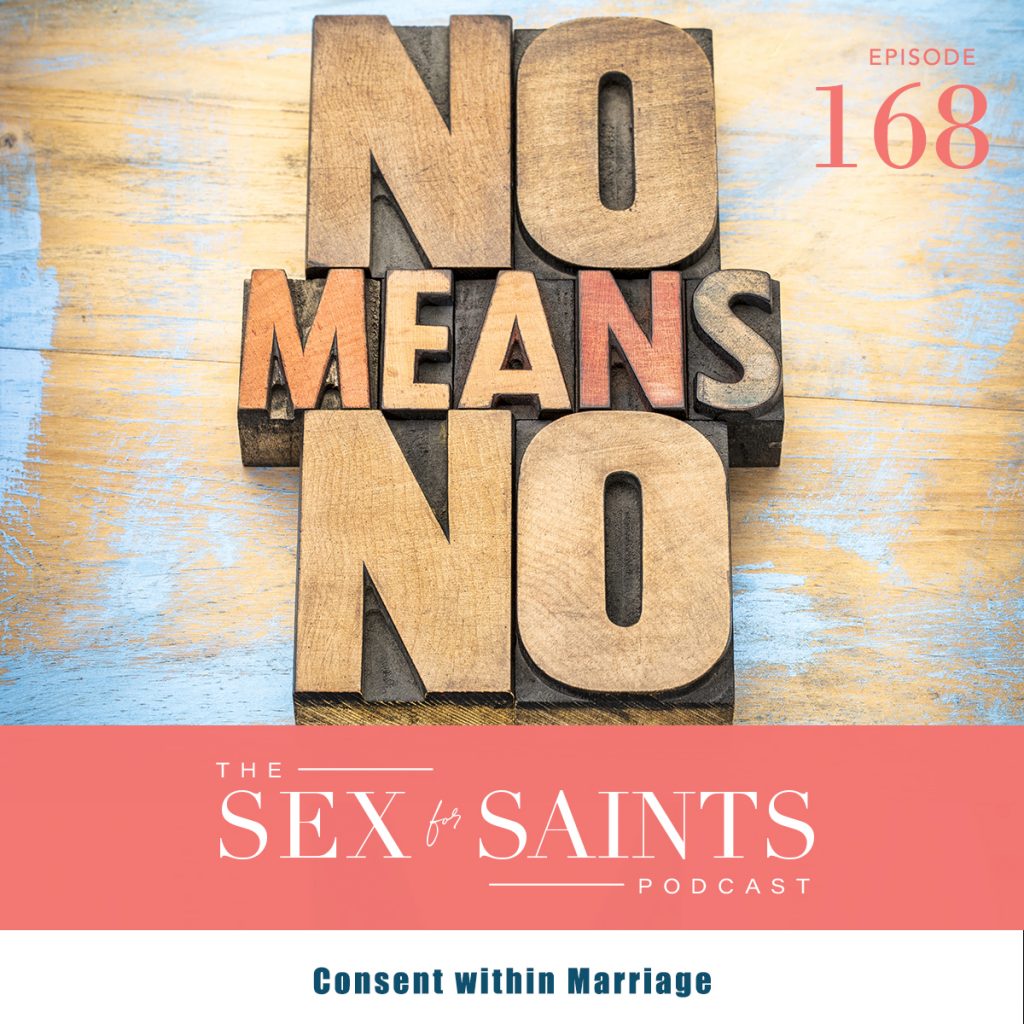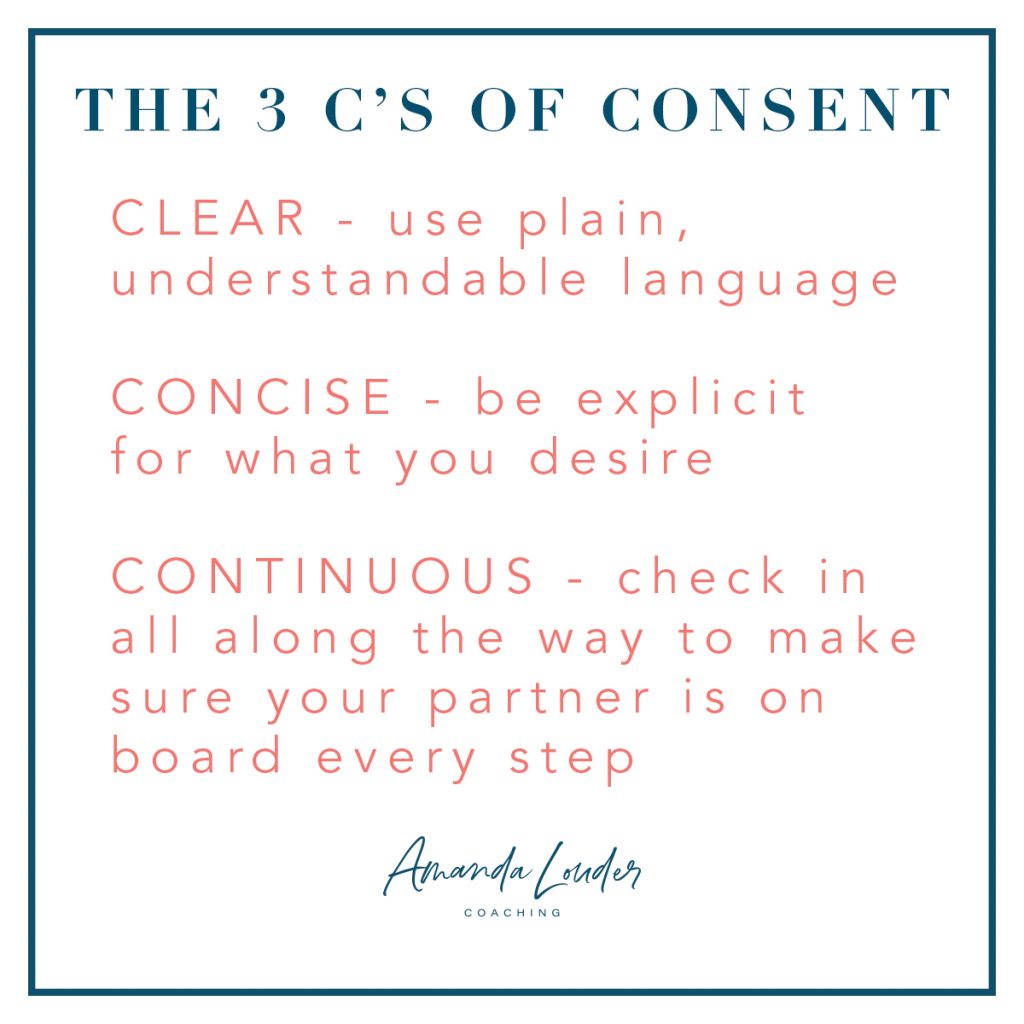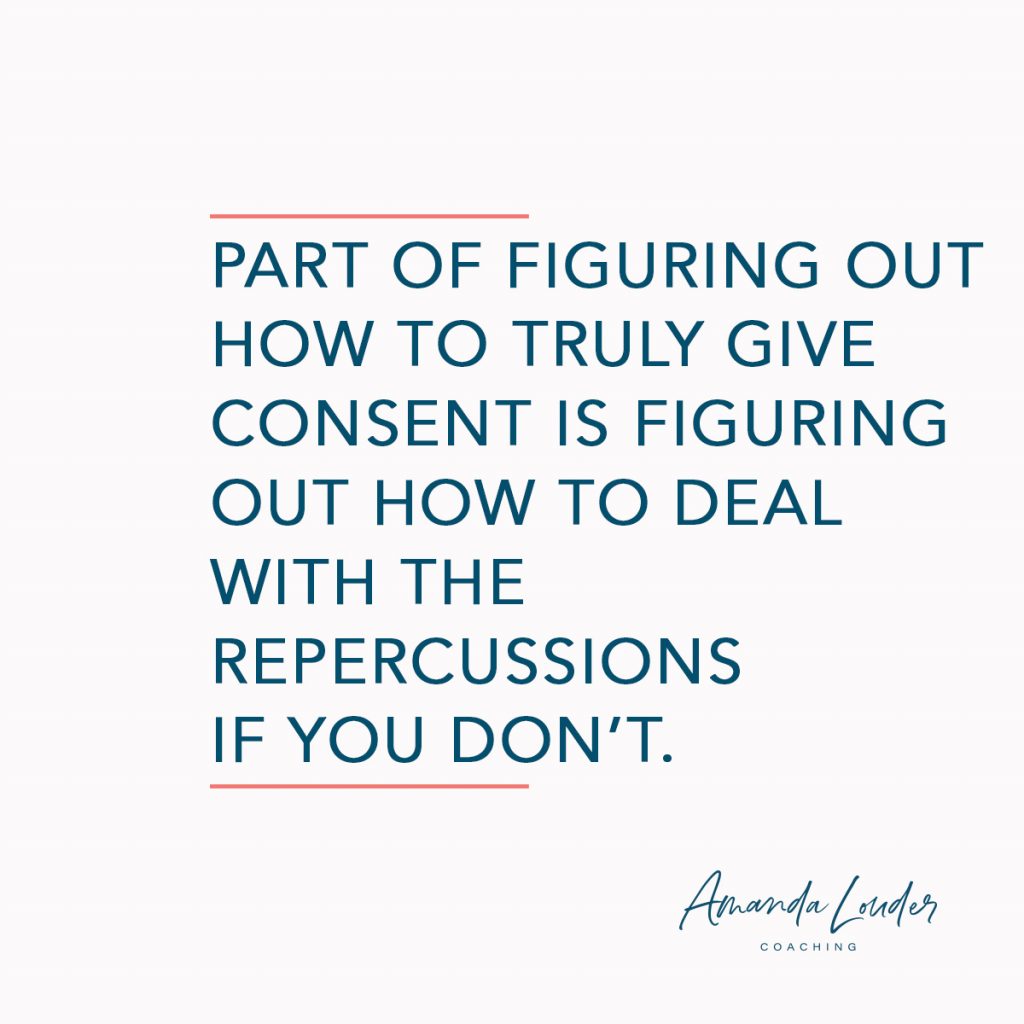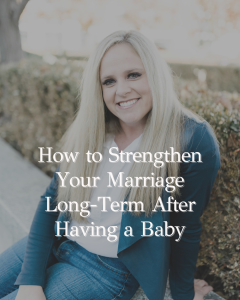
Consent is truly a buzzword right now. In this episode, we take a look at what consent truly means, in your sex life and beyond, and how we can be true to who we really are and say what we really want and need. As women, we are taught to put our desires aside for our husbands and children. Let’s really look at that and see if you can find your true desires that you’ve buried deep down.




Show Notes:
Follow Amanda on Facebook and Instagram.
Join Amanda’s Private Facebook Group.
References for this episode:
Show Summary:
In Episode 94, I discussed the six principles of Sexual Health from Doug Braun-Harvey and the Harvey Institute. Today I’d like to go a little more in depth about the first principle of sexual health, which is consent.
Consent seems to be a big buzzword today, so let’s first define it. The Oxford Dictionary says consent is “permission for something to happen or agreement to do something.”
But Merriam-Webster goes a bit further. It says “Compliance in or approval of what is done or proposed by another specifically. The voluntary agreement or acquiescence by a person of age or with the requisite mental capacity who is not under duress or coercion and usually who has knowledge or understanding.” I think that last part is crucial. You must be able to say yes without duress or coercion. In Canada, the legal definition of consent means “a voluntary agreement to engage in sexual activity without abuse, or exploitation of “trust, power, or authority, or threats.” And consent can also be revoked at any moment.
In the context of sex, anything of a sexual nature without consent is considered rape or sexual assault. Even within marriage. And it’s not just saying “ok” or “I guess so.” True consent is a whole-hearted yes! An enthusiastic yes! It’s an agreement that sex is going to be mutually beneficial for both people.
I heard a saying once (and I can’t remember where I heard it) but I use it often. It says “If you can’t say no, you can’t ever truly say yes.” This very much applies to the sexual dynamic in marriage. Let’s say we have the more common higher-desire man, lower-desire woman scenario. Is the wife able to say “no” to sex without repercussions? Does he pout, whine, coerce, cajole to try and get her to cooperate? Does he “punish” her by getting angry, withdrawing, ignoring, or withholding if she says no? If this is the case, she can never truly say yes, because she is most likely saying “no to the repercussions” rather than saying “yes to the sex.”
As women, it makes sense that we do this. Often times we’d rather just “deal” with having sex every few days rather than the repercussions if we don’t. And, I would say, we are even kind of groomed to do this. We are taught, especially as women, that we need to sacrifice our own wants and desires for the good of our husbands and our children. We are taught that we can’t say what we truly want because we don’t want to hurt other people’s feelings. We are taught that we can’t say “no” to a calling. We are taught that in order to be accepted by the community our life needs to follow a specific pattern. So, we are groomed to say “yes” even when we don’t want to. That our own wants and desires don’t matter as much as someone else’s. But when we do this, we destroy our relationship to ourselves. We invalidate our own emotions and desires. We tell ourselves that we aren’t worth what we want for ourselves. We’ve been groomed to comply. Now, I truly believe that most of this is being done without malicious intent. But it is happening nonetheless.
So what does consent need to look like in sex and in other areas of your life?
- Consent is constant communication that you wholeheartedly want this
- Giving consent one time for one activity, does not mean you give consent for other activities or for the same activity on other occasions.
- You can change your mind at any time.
- It should be enthusiastic!
- It’s saying a verbal “yes” not just an absence of “no”
- It should be explicit
Planned Parenthood had an acronym I liked. FRIES
F – Freely Given – Consenting is a choice you make without pressure or manipulation
R – Reversible – Anyone can change their mind about what they feel like doing, anytime. Even if you’ve done it before, and even if you’re both naked in bed.
I – Informed – You can only consent to something if you have the full story. So be honest too!
E- Enthusiastic – When it comes to sex, you should only do stuff you WANT to do, not things that you feel you’re expected to do.
S – Specific – Saying yes to one thing (like going to the bedroom to make out) doesn’t mean you’ve said yes to others (like having sex).
Another easy to remember things about consent..The three C’s
Clear – use plain, understandable language
Concise – be explicit for what you desire
Continuous – check in all along the way to make sure your partner is on board every step
These acronyms can be used not only for sexual consent, but also consent in other areas of our life as well. Do we want to say “yes” to the calling that has been extended to us? Do we want to say “yes” when someone asks you to make cookies for a school event? Do you want to say “yes” when your mom invites you to dinner?
This is about so much more than consent. It’s about tuning into your own wants and desires. Your own internal compass and integrity. Learning how to honor your own desires and wants is a big part of my program. I was actually just talking about this with some of my clients in one of our sessions this past week. One client said that for years she has invited her husband’s family over to their home and made all of the food and hated it. But through what she has learned in my program, she has learned to honor what she truly wants for herself. So she still invited the family over, because she likes them, but realized she hated cooking so she ordered food in. Another client says she constantly feels at the whim of her children. They are always asking her to take them to do things, or they need to go shopping, or they want to spend time with her. She wants to spend time with them, but sometimes it’s not a good time or she has other things planned. In the past, she felt like she always had to do these things because she was a bad mom if she didn’t or it would hurt their feelings. But in the process, she has hurt her own relationship with herself.
Part of figuring out how to truly give consent is figuring out how to deal with the repercussions if you don’t. It’s about learning how to handle yourself in the face of those repercussions. It’s about figuring out your wants and desires and standing up for those even if no one else does. This is not an easy thing, but it is so worth it, which is why I teach women in my program how to do this.
A lot of people think that my program is just about sex. And it is a lot about sex. But it’s about so much more than that. It’s really about tuning into yourself, your highest self, and learning how to be her in EVERY situation, including sex! It’s about not just going through the motions in life, but truly making thoughtful choices that lead you to where you want to go in your life and in your relationships.
If you want more self-respect, confidence, and a better sexual relationship, you need to look at what YOUR desires are. Not the desires that society, culture, the church, your family, or your husband have put on you, but what you truly desire. Jennifer Finlayson-Fife says sometimes in order to see them we need to look at where our resentments lie. Do you resent your husband? Do you resent your calling in church? Do you resent that you feel like you have to do things a certain way? Those are clues that you are not honoring yourself. What desire is being neglected? What are you participating in that undermines your peace? What are you not taking responsibility for? What are you not fully giving consent to and still participating in?
Before you say “yes” or “no” to something (including sex) I want you to ask yourself these questions:
- What is my intention for saying yes (or no) to this?
- If I say “yes” or “no” do I like my reasons?
- Do I have enough information to make an informed choice?
- Is this the right time?
- Does this align with my values and who I want to be?
- Will saying yes/no get me closer or further from what matters most to me?
As always, if you want more help with this, I invite you to come into my coaching program, where we work on all of it. Many of you say “since listening to your podcast, things are so much better. I don’t need the coaching program!” But I promise you, everything gets better when we deal with not only sex, but every aspect of your life and up level it. Some of my clients never get coached on sex. They get coached on other things that are affecting them and yet their Sex Life still gets better too. I will be opening up enrollment for my next group soon. It will be starting Tuesday, August 17 at 10am Mountain Time and you can enroll for as little as $249 a month. It really makes it pretty doable for almost everyone.
For more information or to sign up for a FREE consultation with me, go to my website AmandaLouder.com.



